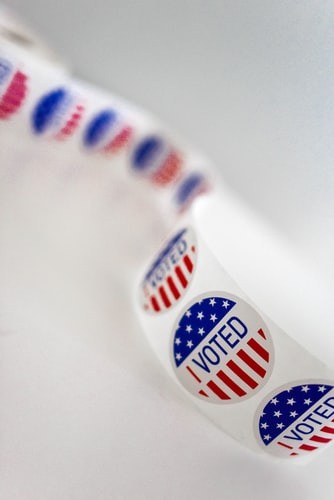Convicted Felons in Florida Are Now Allowed To Vote in Upcoming Election
Florida's Amendment 4 now allows the convicted felons in the state to vote in the upcoming presidential election. This is the first time in the state and could potentially change the presidential election.

The 2020 U.S. Presidential election will be a week from now. While millions have already voted in-person across different states, millions are also expected to vote on Nov. 3. This election will be historical as well in the state of Florida as they allow convicted felons to vote.
In Florida's Amendment 4 which was passed in 2018, it allows a convicted person to vote provided that he or she has already served and completed all terms of his or her sentence.
That also includes the fines sanctioned to the convicted person, according to a published report in ABC News.
In the previous election, Florida did not allow everyone in the state who have felony convictions to vote.
ulie Ebenstein, a senior staff attorney with the American Civil Liberties Union's voting rights project, even said that the state used to have the worst system across the country in terms of felony disenfranchisement.
Even though millions of felons who have already completed their sentence can now vote, Ebenstein also said that many still cannot vote due to legal fiscal obligation.
He said, "Politicians in Florida, unfortunately, in 2019 passed a law that interpreted all terms of sentence to include payment of the legal financial obligation."
Just like in many states across the country, Florida charged anyone convicted of a crime with various fines if they committed an offense. In fact, ACLU along with several groups attempted to block the financial requirement.
However, a federal appeals court appealed that former felons or convicted felons are required to pay their legal financial obligation before they can vote.
Neel Sukhatme, an associate professor of law at Georgetown University and the co-founder and director of the non-partisan group Free Our Vote, said: "It's one thing to be able to say to folks, 'Hey, you got to pay back your fines and fees in order to vote.' It's another thing when those folks show up and say, 'How much do I owe?' The state says, 'Oh, well, we can't really tell you because there are 67 counties and it's really complicated,'"
Sukhatme also explained that convicted felons in the state who have completed their sentence should know the accurate information on how much they owe and how much they need to pay. He also asserted that this should be given regardless of their political beliefs.
Meanwhile, the Free Our Vote team gathered and analyzed set of data across the country. Their aim was to make into the clearinghouse and will help those who are previously convicted to get the information they needed on what specific payments they owed, where, and how they could pay them.
Mark Ard, Florida Department of State spokesperson, said that the state does not separately track registered voters whose votes are restored under the new Amendment. According to the Florida Rights Restoration Coalition, around 67,000 people with prior felony convictions were able to register to vote.
Check these out!
Subscribe to Latin Post!
Sign up for our free newsletter for the Latest coverage!
© 2026 Latin Post. All rights reserved. Do not reproduce without permission.














